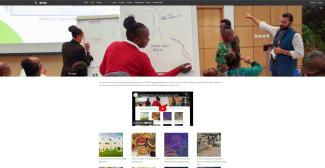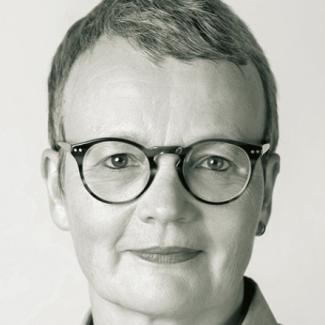Multistakeholder cooperation
From GFAR to GFAiR
 GFAR/GFAiR
The new knowledge hub went online in October.
GFAR/GFAiR
The new knowledge hub went online in October.
GFAiR is a network of networks. It cooperates with organisations and institutions around the world, focusing on the transformation of the agri-food system. Regional fora on agricultural research, National Agricultural Research Systems (NARS), farmers associations, governmental extension services, civil-society organisations and the private sector are involved. GFAiR supports members’ priorities and facilitates their initiatives. It organises joint projects, which are called “Collective Actions”. They concern land rights in the climate crisis, forgotten foods, inclusive digitalisation, family farming and transformational learning in higher education.
The core concern is to improve the livelihood of disadvantaged rural communities. These communities matter for two reasons:
- They are particularly prone to suffering hunger and malnutrition, and
- their full potential for producing food still needs to be tapped.
According to a recent independent external evaluation the Forum is so important that it would have to be invented if it did not exist already. In view of escalating environmental crises (climate, biodiversity, desertification and more), however, business as usual is not enough. Making the agri-food system sustainable is a top concern of the international community.
It is therefore good news that this multi-stakeholder platform has recently been growing fast, welcoming more than 200 additional member institutions in the past two years. The network now has more than 900 members. Its new knowledge and learning website called “GFAiR Hub” went online in October.
Important institutional changes
The rebranding to GFAiR will go along with several other important changes. So far, the Forum was hosted by the UN Food and Agriculture Organization (FAO). In future, it will receive funding from DG INTPA (the European Commission’s Directorate-General for International Partnerships) via the International Fund for Agricultural Development (IFAD) and be hosted by the Consultative Group of International Agricultural Research (CGIAR). In this context, GFAiR’s highly diverse membership will boost the voice of developing countries.
GFAiR will also be more decentralised relying on staff in Rome but also at the CGIAR headquarters in Montpellier and regional fora on agricultural research in Jordan (AARINENA), Thailand (APAARI), Uzbekistan (CACAARI), Germany (EFARD), Ghana (FARA) and Costa Rica (FORAGRO). Moreover, GFAiR is currently working on establishing a new Global Consortium of National Agricultural Research Systems (GNC). It will be launched at a global conference in June 2024.
GFAiR will tackle additional topics, including soil fertility and agro-ecology for example. At the same time, the five established Collective Actions will be brought to a good conclusion and/or continued. All of these issues contribute to boosting the global food system’s resilience to shocks such as supply-chain disruptions, for example. The war in Ukraine and the Covid-19 pandemic have shown how painful shocks can be.
This network of networks stands ready to promote agricultural research and innovation with more impact. It has a vital role to play for achieving the Sustainable Development Goals. GFAiR continues to welcome new members.
Links
Evaluation report:
https://www.gfar.net/sites/default/files/GFAR%20Final%20Report%20delivered%209 %20May%202018.pdf
Knowledge and learning website:
https://opensocial.gfar.net/
Hildegard Lingnau is the executive secretary of the Global Forum on Agricultural Research and Innovation (GFAR/GFAiR).
hildegard.lingnau@fao.org


